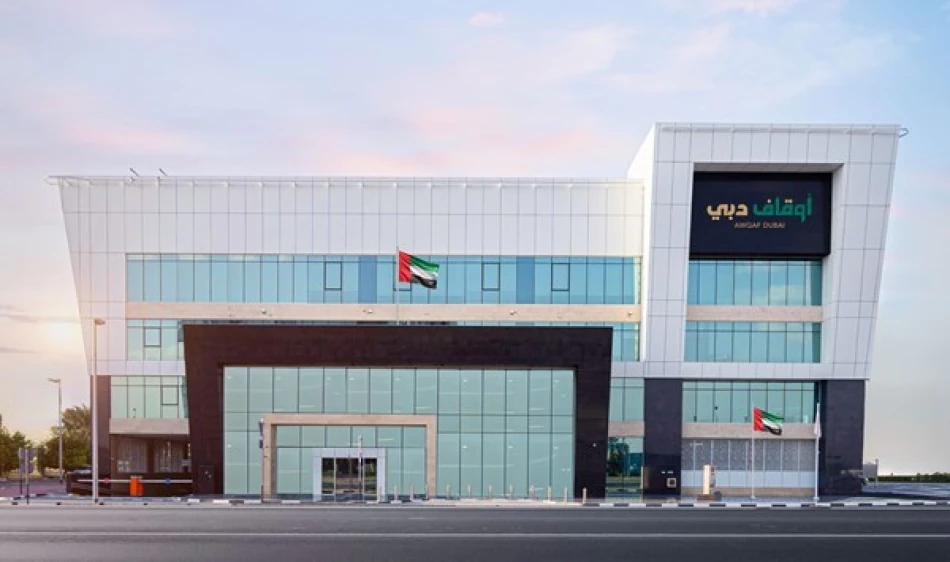
Dubai Awqaf's Endowment Stocks Exceed AED 9 Million in H1
Dubai's Islamic Endowment Fund Hits AED 9 Million as Traditional Waqf Embraces Modern Finance
Dubai's Foundation for Endowments and Minors' Affairs has achieved a milestone that signals the successful modernization of Islamic philanthropy, with its stock-based endowment portfolio surpassing AED 9 million in the first half of 2025—a 4.7% year-on-year growth that demonstrates how centuries-old waqf principles can thrive in contemporary capital markets.
Strategic Portfolio Diversification Drives Growth
The foundation's investment strategy centers on diversified holdings across both the Abu Dhabi Securities Exchange and Dubai Financial Market, creating a buffer against market volatility while generating sustainable returns for charitable purposes. This approach reflects a sophisticated understanding of risk management that goes beyond traditional real estate-heavy endowment models.
According to the foundation's investment management report, the positive performance validates the institution's investment policies designed to preserve and grow endowment assets while maximizing returns for social and charitable objectives.
Innovation Meets Tradition in Islamic Finance
The success builds on Dubai's groundbreaking 2018 launch of the world's first dedicated securities endowment management account through the "Stock Waqf Service Initiative." This innovation opened doors for UAE citizens, residents, and investors to designate portions of their financial portfolios as religious endowments—a significant departure from traditional property-based waqf structures.
Ali Al Mutawa, Secretary-General of the Dubai Foundation for Endowments and Minors' Affairs, emphasized the institution's commitment to expanding and diversifying endowment investments in line with Dubai's vision for innovative waqf leadership and sustainable humanitarian projects.
Direct Impact on Vulnerable Communities
The foundation operates with full transparency regarding fund distribution—100% of stock endowment returns are allocated annually to targeted charitable causes based on donors' specifications. These include education for underprivileged students, medical treatment for those in need, support for widows and orphans, and empowerment programs for people of determination.
Regional Leadership in Islamic FinTech
Dubai's approach positions the emirate as a pioneer in modernizing Islamic charitable giving, potentially setting a template for other Gulf states and Muslim-majority countries seeking to revitalize their waqf systems. While Singapore and other financial hubs focus on conventional ESG investing, Dubai is carving out a niche in faith-based sustainable finance.
The 4.7% growth rate, while modest, represents steady progress in a challenging global economic environment marked by inflation concerns and geopolitical tensions. More importantly, it demonstrates the viability of Sharia-compliant equity investing as a sustainable funding mechanism for social programs.
Market Implications and Future Outlook
For investors and policymakers, Dubai's success offers valuable insights into the intersection of religious principles and modern portfolio management. The foundation's ability to attract both individual and institutional donors while maintaining steady returns suggests untapped potential in Islamic social finance.
The initiative also supports Dubai's broader strategy to become a global hub for Islamic finance innovation, complementing its existing strengths in Islamic banking and sukuk issuance. As traditional government welfare systems face fiscal pressures worldwide, Dubai's model presents an alternative approach to funding social services through private religious endowments backed by capital market returns.
This growth trajectory indicates that Dubai's waqf modernization efforts are gaining traction, potentially inspiring similar initiatives across the Islamic finance sector and reinforcing the emirate's position as a bridge between traditional Islamic values and contemporary financial innovation.
Most Viewed News

 Layla Al Mansoori
Layla Al Mansoori






